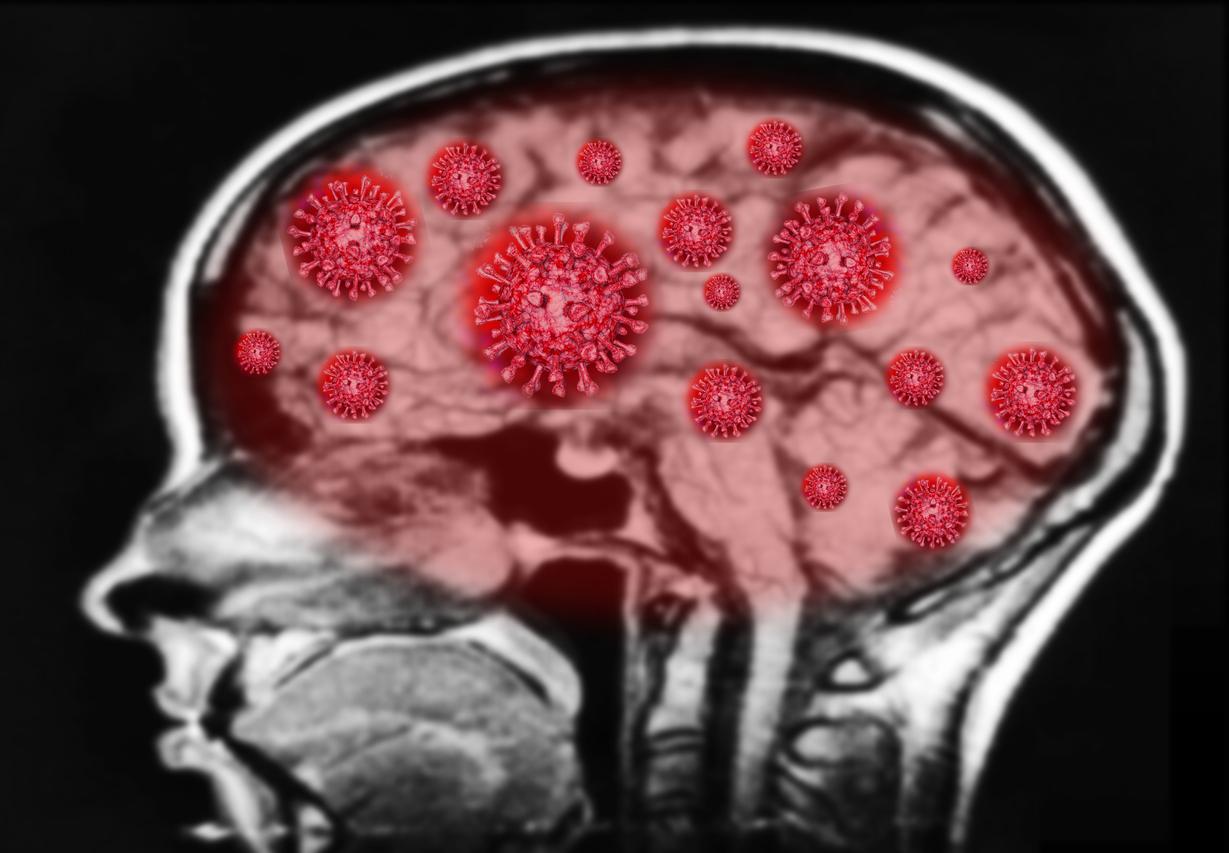An epidemiologist takes stock of the impact of a Covid-19 infection on the brain and cognitive abilities.

- Covid-19 infection impacts brain health.
- One study found that a mild form of the disease can cause a loss of 3 IQ points, and this can rise to 9 points with a severe form.
- SARS-CoV-2 causes lesions and changes in the brain. Several studies have observed faster brain aging in covid patients.
While Covid-19 still holds some mysteries, it is now well established that a SARS-CoV-2 infection has an impact on brain health. Brain fog is one of the disorders most associated with the coronavirus. However, it is not the only one.
In an article published in The Conversation This summer, Ziyad Al-Aly, an epidemiologist at Washington University in St. Louis, took stock of the extent of our knowledge on the subject as well as the latest discoveries concerning the consequences of Covid-19 on brain health.
Covid-19: up to 9 points less IQ
A large study of nearly 113,000 people affected by Covid-19, published in the journal New England Journal of Medicinemakes a worrying observation. First of all, it confirms that patients exhibited deficits in memory and performance in executive tasks whether they were infected with SARS-CoV-2 or its Delta and Omicron variants.
Moreover, their memory was not the only one impacted. The team noted a cognitive decline equivalent to a loss of three intelligence quotient (IQ) points in people who had contracted a mild form of Covid-19. In addition, the more severe the form, the greater the loss of points. Thus, patients who still had symptoms such as shortness of breath or chronic fatigue had an average of 6 fewer IQ points. Those who were admitted to the intensive care unit showed a loss of 9 IQ points. In addition, two additional IQ points were lost in the event of a new contamination.
“According to the figures I have, a three-point downward shift in IQ would increase the number of American adults with an IQ below 70 from 4.7 million to 7.5 million. In other words, the number of adults with a level of cognitive impairment considered to require significant societal support could increase by 2.8 million.”the researcher specifies in his article.

SARS-CoV-2 leaves traces in the brain
Beyond the loss of IQ, the researcher listed other cognitive and cerebral complications observed in people infected with Covid-19 since the start of the pandemic. For example, one study showed that people who had a mild to moderate form of Covid-19 had prolonged brain inflammation. In addition, the cognitive changes observed corresponded to 7 years of brain aging. For severe and serious forms, brain damage was equivalent to a aging for 20 years.
Traces of the passage of SARS-CoV-2 were also directly visible on the brain. Imaging studies carried out before and after infection with the virus showed a reduction in brain volume and an alteration of the brain structure after the disease. Other works have also shown that Covid-19 can disrupt the blood-brain barrier (the barrier that protects the central nervous system).
“Autopsies of people who had suffered a severe form of Covid-19 but later died of another cause have shown that the virus was still present in the brain tissue, months after infection. This proves that SARS-CoV-2 is not only a respiratory virus. Far from only attacking the respiratory tract, it can also penetrate other organs, including the brain in some individuals.”the author specifies.
For him, all of his work confirms that Covid-19 “poses a serious risk to brain health, even when the disease presents in a mild form”These elements highlight the identification of the risks of infection on cognitive performance.
“Better understanding how this situation might affect the educational outcomes of children and young people, as well as the economic productivity of working-age adults, will also be crucial. Furthermore, it should be borne in mind that the epidemiology of Alzheimer’s disease or other diseases leading to dementia could be affected, although it is not yet known to what extent.”concludes the expert.


















